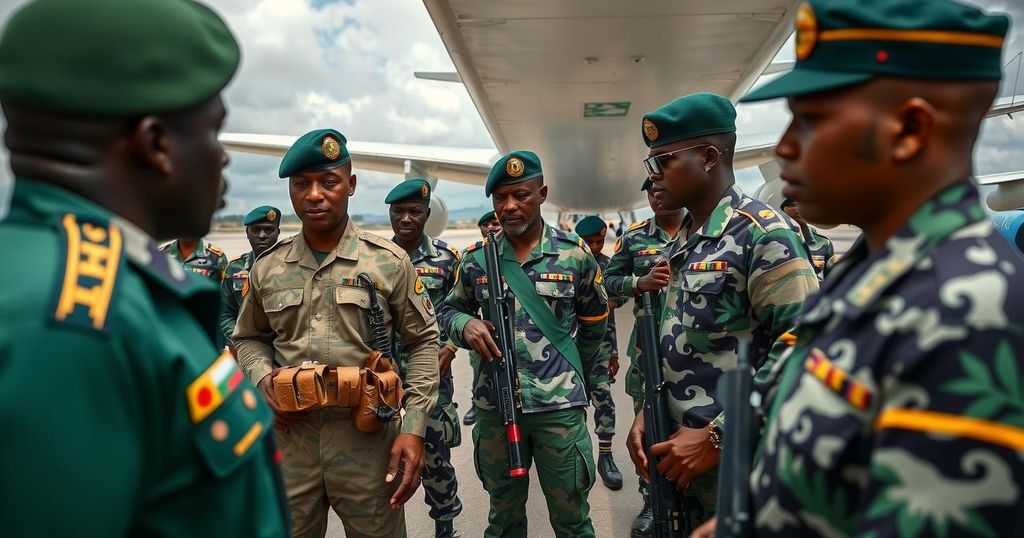Russia Enhances Influence by Sending Military Instructors to Equatorial Guinea

Russia has sent 200 military instructors to Equatorial Guinea to enhance the security of President Teodoro Obiang Nguema Mbasogo and his son. This action reflects Russia’s growing influence in West Africa and comes after significant American investments were reassessed. The Russian trainers focus on local security forces, indicating a strategic move to stabilize the ruling regime amid allegations against the vice president.
In a significant move to bolster its influence in West Africa, Russia has dispatched 200 military instructors to Equatorial Guinea. Their primary objective is to ensure the security of President Teodoro Obiang Nguema Mbasogo, who has been in power since 1979, and to protect his son, the vice president, who is facing allegations of financial misconduct. The Russian instructors previously trained local security forces in the nation’s major urban centers, which are home to extensive oil reserves. This development prompted American companies, who had previously committed investments in the region, to revise their plans. During a September visit to Moscow, President Obiang expressed gratitude to Vladimir Putin for the assistance provided in fortifying his country’s defense.
Equatorial Guinea, a small but oil-rich nation located on the western coast of Central Africa, has been under the rule of President Teodoro Obiang Nguema Mbasogo for more than four decades. His regime has been characterized by alleged human rights violations and corruption. The presence of Russian military instructors underscores a strategic partnership that enhances Russia’s geopolitical standing in a region that is rich in natural resources but often under international scrutiny. The ongoing training of local security forces indicates a concerted effort to maintain the ruling dynasty, with President Obiang’s son positioning himself as a potential successor amidst serious criminal investigations into his activities.
The deployment of Russian military instructors to Equatorial Guinea illustrates a growing collaboration between Russia and the African nation, aiming to secure the ruling government’s stability. This move not only reinforces the political structure in Equatorial Guinea but also marks an escalation in Russia’s engagement in African geopolitics, particularly in nations characterized by resource wealth and governance challenges. The implications of this partnership may also affect foreign investments and local security dynamics moving forward.
Original Source: 112.ua








